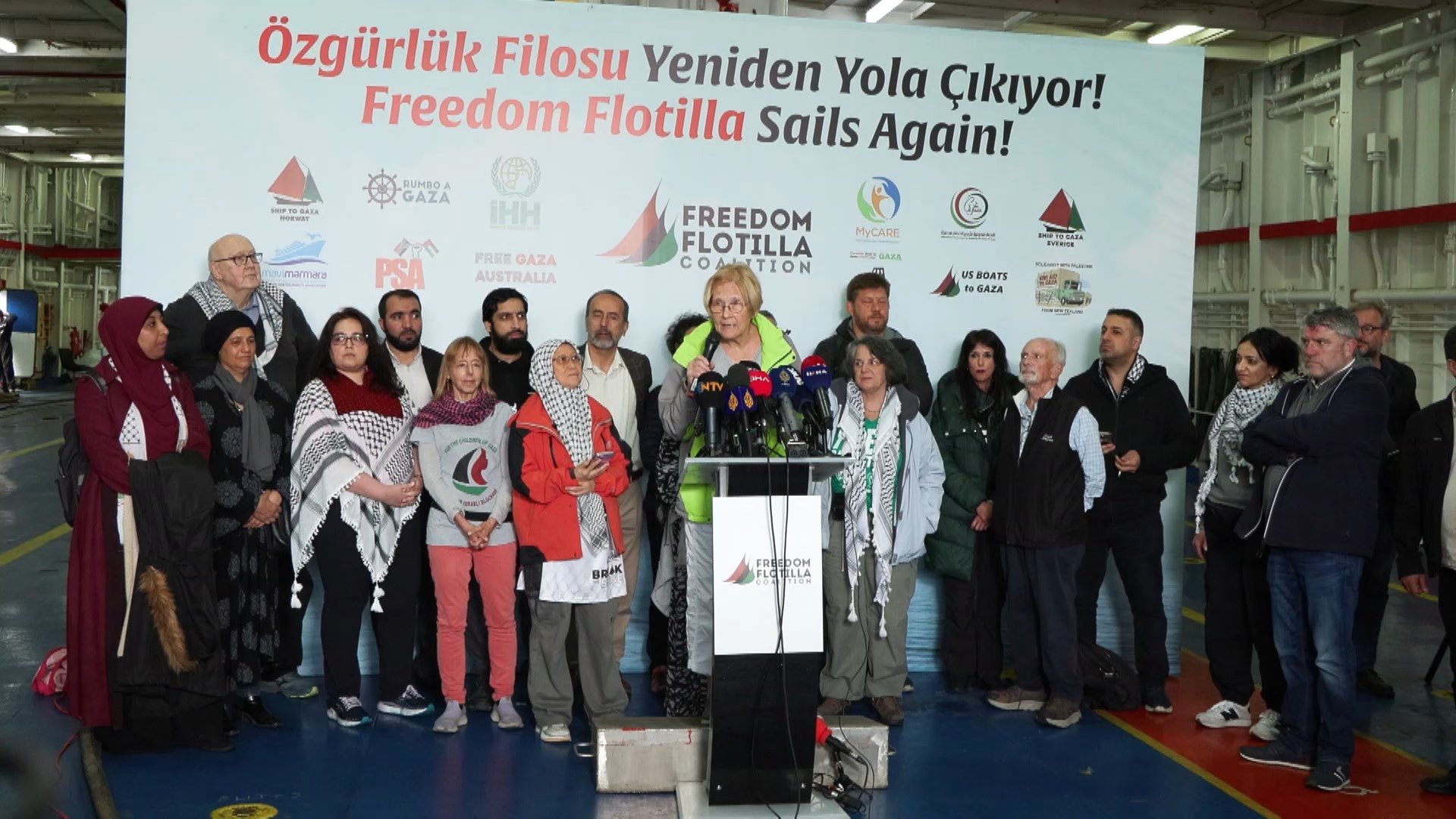© Turkuvaz Haberleşme ve Yayıncılık 2026
The International Freedom Flotilla brought together ships and activists from 12 countries, from the United Kingdom, Sweden to the United States and Türkiye. Some 14 years after a similar attempt was brutally suppressed by Israel, the flotilla aims to break Israel’s blockade of the Palestinian enclave of Gaza. Activists held a news conference in Istanbul on Friday ahead of their planned journey.
The Humanitarian Aid Foundation (IHH) is among the Turkish charities contributing to the flotilla. In May 2010, the IHH sent an aid vessel called Mavi Marmara to Gaza along with five other civilian ships of the "Gaza Freedom Flotilla" in an attempt to breach the Israeli blockade. The ship was intercepted by the Israeli military in a deadly offshore raid in the international waters of the Mediterranean Sea. Nine pro-Palestinian activists on board the aid ship were killed during the raid and a 10th died in 2014 after years in a coma.
Some 1,000 people are expected to travel aboard the flotilla's ships, whose number currently stands at three, according to media outlets.
Speaking at a news conference aboard Akdeniz, one of the ships of the flotilla docked at Tuzla shipyard, Malaysian activist Dr. Fauziah Mohd Hasan said the ships, which is expected to leave by the end of April, will carry thousands of tons of aid for Palestinians. She said that the flotilla’s other purpose was raising the voice for a cease-fire in the region. She stated that Gaza was going through an ordeal and as an obstetrician, she observed that thousands of pregnant women in Gaza were affected by the crisis that "escalated into ethnic cleansing."
Torstein Dahle, a Norwegian activist, said Gaza was in need of aid after six months of genocide and massacre. He said they appreciated the Turkish government’s efforts for Palestinians.
Huwaida Arraf, a Palestinian-American lawyer and human rights activist, said they were angered by U.S. inaction on the matter and its cooperation with Israel. She said they sought to tell Palestinians that they were “not abandoned.”

Ann Wright, a retired colonel and former U.S. State Department diplomat who joined the activists, said the current tensions between Iran and Israel would not affect their work. On a question of what they would do if Israel raids the flotilla as it did back in 2010, Wright said it would not look good in Israel’s record, already notorious for violation of international laws. Answering a question whether the Turkish government sanctioned the journey, Wright said they had political expectations and underlined the need for all countries in the region to help them.
Flouting the International Court of Justice's (ICJ) provisional ruling, Israel continues its onslaught on the Gaza Strip, where more than 33,000 Palestinians have been killed, mostly women and children, since Oct. 7, 2023, according to Palestinian health authorities.
Israel stands accused of genocide at the International Court of Justice. An interim ruling in January ordered Tel Aviv to stop genocidal acts and take measures to guarantee that humanitarian assistance is provided to civilians in Gaza.
Hostilities have continued unabated, however, and aid deliveries remain woefully insufficient to address the humanitarian catastrophe.
Currently, aid agencies say only about a fifth of needed supplies are entering Gaza as Israel persists with an air and ground offensive that has shattered the coastal enclave, pushing parts to the verge of famine. They say that deliveries by air drop or by sea directly onto Gaza's beaches are no substitute for increased supplies coming in by land via Israel or Egypt.
Despite Israel's self-proclaimed "total siege" on Gaza, it claims it puts no limit on the amount of humanitarian aid entering Gaza and blames problems in it reaching civilians within the enclave on U.N. agencies, which it says are inefficient. Aid groups blame Israel's blockade and red tape.
